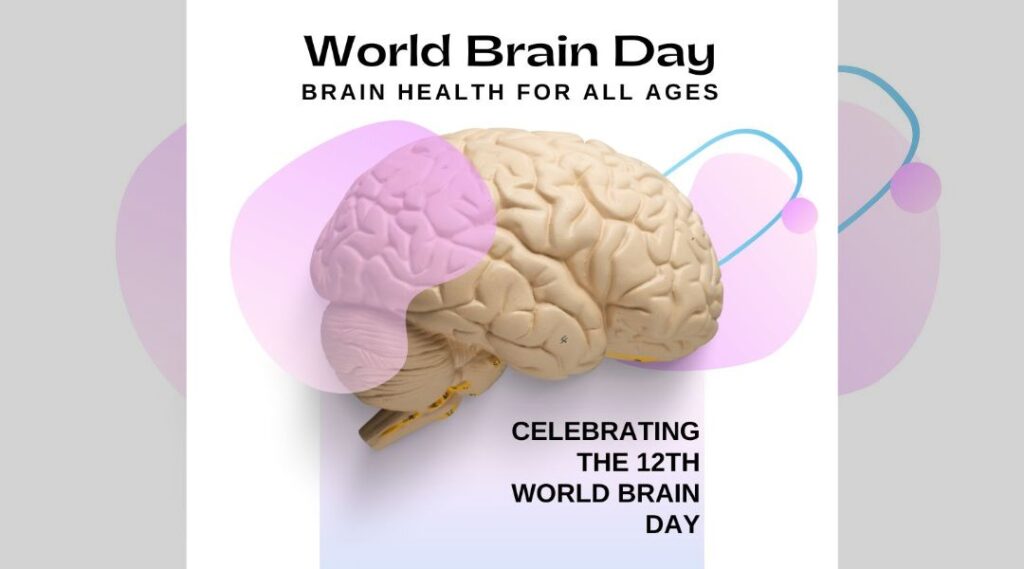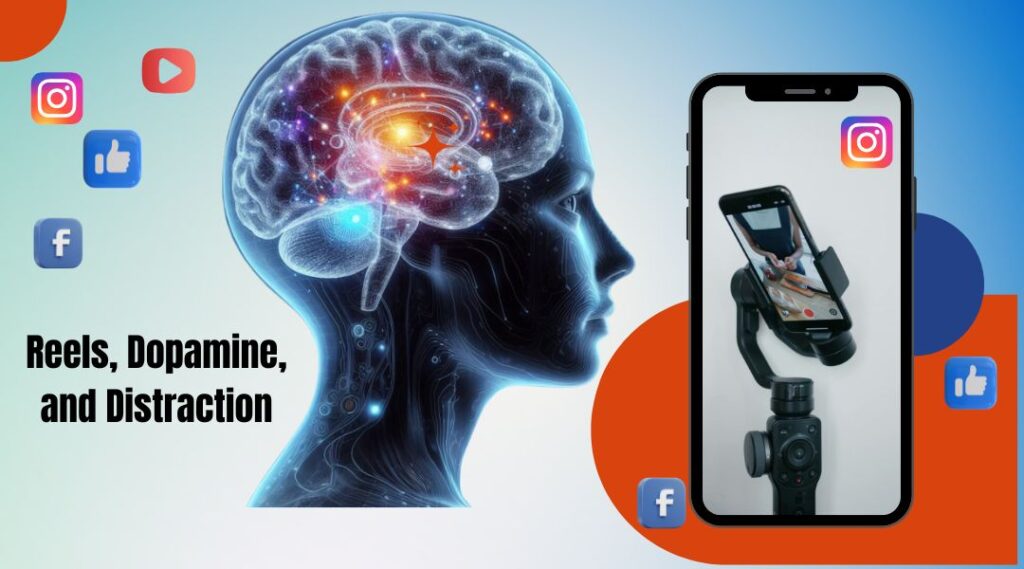World Brain Day – Brain Health for All Ages
World Brain Day – Brain Health for All Ages Team Kedarq July 11, 2025 Our brain is the command center of the human body. It enables us to think, move, feel, remember, and communicate. Despite its importance, neurological disorders are often misunderstood, neglected, or diagnosed late, leading to immense suffering for individuals and their families. To bring this issue into the spotlight, the World Federation of Neurology (WFN) initiated World Brain Day in 2014. Since then, this day is observed every year on 22nd July to promote awareness, share knowledge, and advocate for better care and research in brain health. In 2025, the theme “Brain Health for All Ages” emphasizes the importance of protecting brain health throughout every stage of life—from infancy to old age. Importance of Brain Health The brain works 24/7—even while we sleep. It governs everything from basic survival functions (like heartbeat and breathing) to complex processes like decision-making, memory, emotions, and creativity. However, brain disorders can affect anyone at any age. Causes may include genetics, injury, infections, tumors, aging, or lifestyle-related factors. Common Neurological Conditions: According to the World Health Organization (WHO), neurological disorders are the leading cause of disability-adjusted life years (DALYs) and the second leading cause of death globally. Yet, brain health continues to receive insufficient attention and support. Goals of World Brain Day World Brain Day aims to: “Brain Health for All Ages” – Theme 2025 The theme for World Brain Day 2025 highlights that brain health is a lifelong concern. From children facing developmental disorders, to adults coping with work stress or trauma, to the elderly managing dementia—every age group requires brain care. Why it matters: How You Can Contribute Here are simple but impactful ways to support World Brain Day: 1. Educate Yourself and Others Share accurate information about neurological disorders and early warning signs. 2. Organize Awareness Events Schools, hospitals, and community groups can host camps, lectures, poster contests, and seminars. 3. Use Social Media for Good Post facts, infographics, videos, or personal stories with hashtags like:#WorldBrainDay, #BrainHealthForAllAges, #BrainMatters 4. Advocate for Mental Health Mental health is brain health. Encourage open conversations about anxiety, depression, and emotional well-being. 5. Promote Brain-Friendly Lifestyle Encourage your circle to: Brain Health: Tips for Daily Life Activity Benefit Walk 30 minutes a day Boosts memory and concentration Eat walnuts, seeds & fatty fish Improves cognitive function Meditate and do deep breathing Lowers stress and enhances brain clarity Read or learn something new Stimulates neural pathways Stay socially connected Supports emotional and mental well-being The Role of Early Diagnosis Many brain disorders are progressive, meaning they worsen over time. However, early detection can significantly improve outcomes. World Brain Day encourages: Early diagnosis can prevent: KedarQ Skillify’s Contribution to Brain & Healthcare Education At KedarQ Skillify, we celebrate the dedication of neurologists, healthcare workers, and educators who serve brain health around the clock. Through our paramedical and healthcare courses, we are nurturing a new generation of professionals who are: SkilledCompassionateAware of the value of mental and neurological wellness We believe education is the first step to prevention. Our students are being trained to be the next line of defense in the fight against brain disorders and to serve communities with care and knowledge. World Brain Day is a powerful reminder that brain health is essential at every stage of life. Whether you’re a child developing learning skills, an adult balancing work-life pressures, or a senior striving to preserve memory—your brain needs care and attention. Together, let’s: Let’s Say It Together: “Brain Health for All Ages – Because Every Mind Matters.” Latest Post 11 Jul 2025 World Brain Day – Brain Health for All Ages 07 Jul 2025 Reels, Dopamine, and Distraction: The Brain Science You Should Know 05 Jul 2025 International Paramedics Day 2025: Celebrating Unity and Community 30 Jun 2025 National Doctor's Day: Honoring the Heroes in White Coats 23 Jun 2025 What Happens to the Body During Sleep? 18 Jun 2025 फ्लेबोटोमी – हेल्थकेयर सेक्टर में प्रवेश का पहला कदम 17 Jun 2025 Stress Affects the Human Body Physically 06 Jun 2025 Gut Feelings & Fairytales: 04 Jun 2025 Understanding Human Anatomy: The Foundation of Medical Science 02 Jun 2025 World Environment Day: A Call to Protect Our Planet





